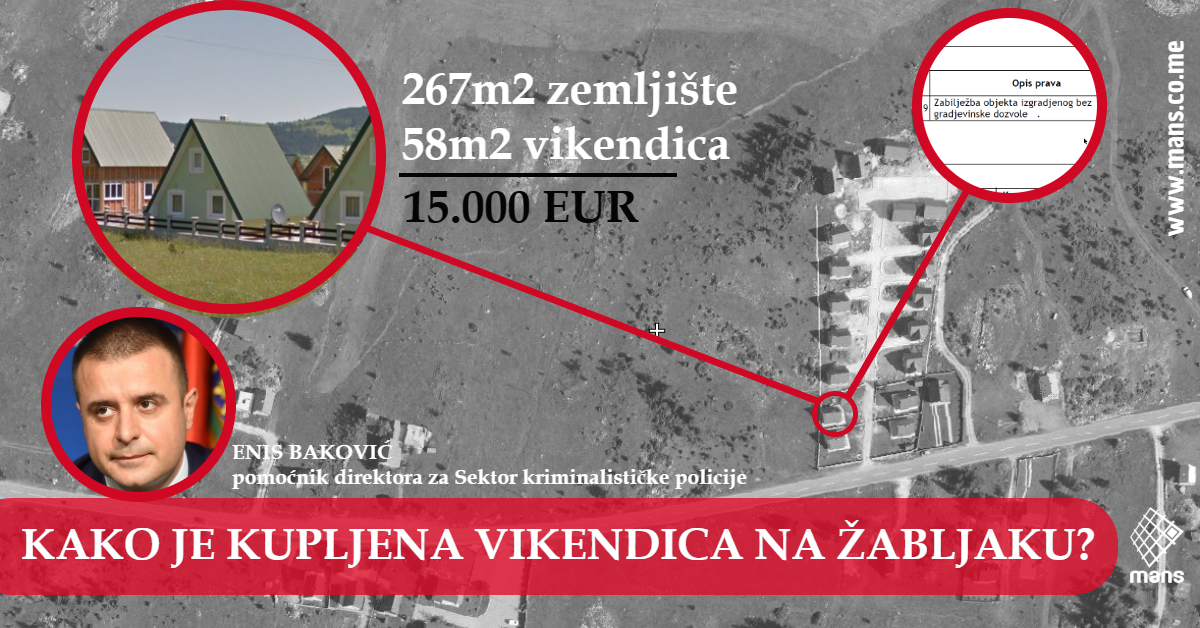Today, NGO MANS reported Enis Baković, Assistant Director of the Police Directorate, to the Agency for the Prevention of Corruption (APC), for multiple and apparent violations of the Law on Prevention of Corruption.
Specifically, requests to initiate proceedings against Baković were filed because of recently discovered facts about the purchase of a cottage with plot in Žabljak – which was officially paid €15,000, and which could not have been purchased with money from officially reported revenues. In addition, MANS data show that Baković did not provide true information in his income statement, i.e. he did not list his wife as a new household member.

MANS previously published detailed information that in 2015 Baković purchased the cottage and plot in Žabljak and paid the property €15,000, which was not reported to APC. Although Baković justified it as a joint property of his family, it was registered in the cadastre on his name alone. If it is true that it was purchased with family money, it is considered a gift within the meaning of the Law on Prevention of Corruption, and as such, it had to be reported to APC.
By withholding this information, Baković also violated the Code of Police Ethics, which obliged him to provide accurate information in the property file (Article 11). In addition, eventual gift had to be reported to his chief, in this case, the Director of the Police Directorate Veselin Veljović.
Suspicions about the legality of Enis Baković’s property began after the media revealed that this police officer owns a luxury Rolex watch whose value greatly exceeds his official and legal income. In an effort to justify owning an expensive watch, Baković referred to family ties back then as well. The final truth about how much the watch was actually paid for and from whom it was purchased is still unknown, given that only his superior, Veselin Veljović, had detailed information about it.
We believe that such behaviour of a senior police officer when it comes to his property and its transparency is absolutely unacceptable, and that Baković, as a public official, is obliged at all times to be ready to answer all questions about his property and income, not only to his superior, but above all to the public of Montenegro and citizens who finance his salary.
Baković case is particularly sensitive because it is a police officer whose public function in the criminal sector is very vulnerable to corruption, especially given the context in which Enis Baković and other senior police officials do their jobs.
The public is already familiar with the cases of police officers who were on the payroll of organized crime groups in Montenegro, so it is of great importance for all those police officers who do their job honourably and fairly that there is as little room to doubt their loyalty to the public interest.
The way Enis Baković has addressed this issue so far certainly did not contribute to the greater trust of citizens in the police and their integrity and capacity to protect them from crime.
Dejan Milovac



